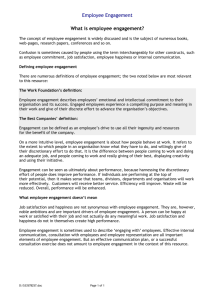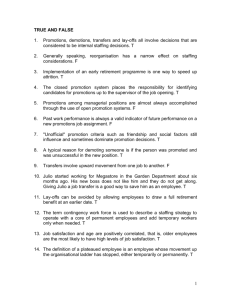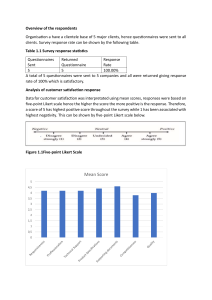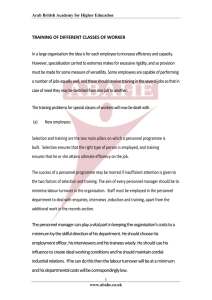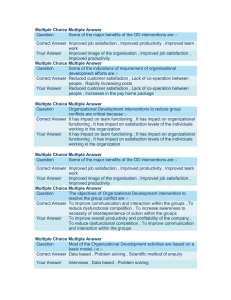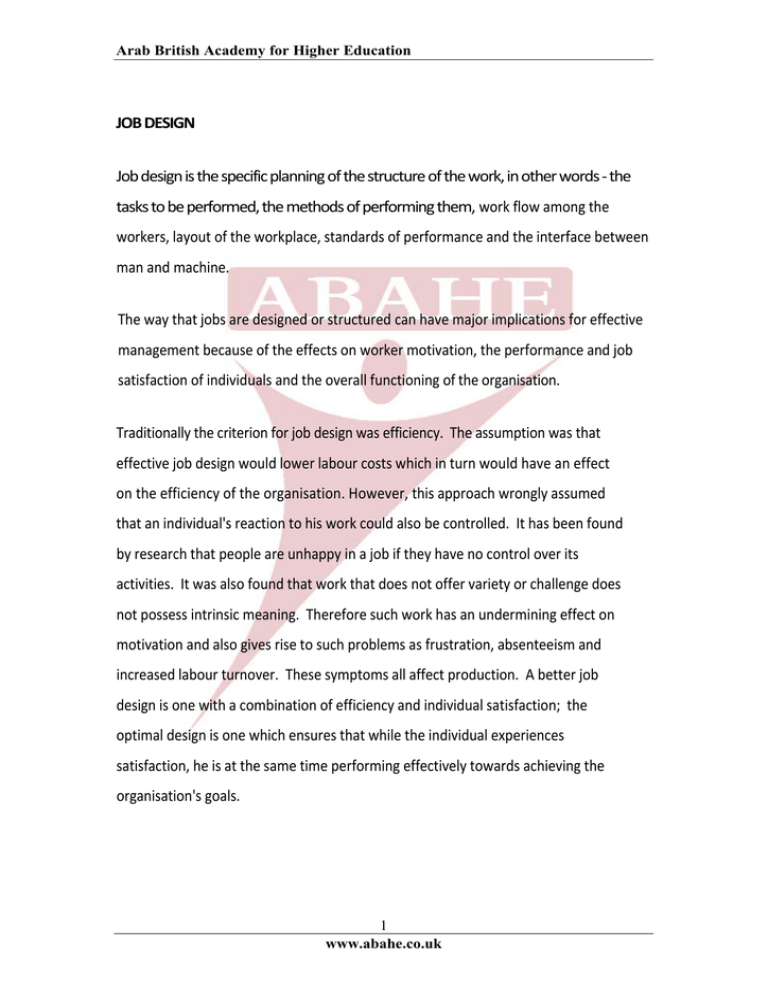
Arab British Academy for Higher Education
JOB DESIGN Job design is the specific planning of the structure of the work, in other words ‐ the tasks to be performed, the methods of performing them, work flow among the workers, layout of the workplace, standards of performance and the interface between man and machine. The way that jobs are designed or structured can have major implications for effective management because of the effects on worker motivation, the performance and job satisfaction of individuals and the overall functioning of the organisation. Traditionally the criterion for job design was efficiency. The assumption was that effective job design would lower labour costs which in turn would have an effect on the efficiency of the organisation. However, this approach wrongly assumed that an individual's reaction to his work could also be controlled. It has been found by research that people are unhappy in a job if they have no control over its activities. It was also found that work that does not offer variety or challenge does not possess intrinsic meaning. Therefore such work has an undermining effect on motivation and also gives rise to such problems as frustration, absenteeism and increased labour turnover. These symptoms all affect production. A better job design is one with a combination of efficiency and individual satisfaction; the optimal design is one which ensures that while the individual experiences satisfaction, he is at the same time performing effectively towards achieving the organisation's goals. 1
www.abahe.co.uk
Arab British Academy for Higher Education
To achieve such a state of affairs it is necessary to know how to deal with individual differences between workers and how different types of workers are affected by different classes of work. When designing a job it is necessary to take into consideration the fact that all individuals differ in their abilities, needs and goals and also in their reactions within the organisation. Because of these varying needs and goals, it is in the best interests of an organisation to adopt a strategy which takes account of these individual differences. It has also been found that detailed job descriptions, direct supervision and financial incentives deprive workers of scope to use their personal discretion and initiative. Job design can influence individuals in three ways:
Their activity level may be affected, which influences the motor and cognitive abilities needed to perform well.
It may offer workers incentives to pursue satisfaction of important needs by encouraging a particular type of job behaviour. This permits the development of methods which will allow both individual job satisfaction and the achievement of the goals of the organisation.
It may have a direct impact on the worker's needs and goals and thus offer additional indirect opportunities for need satisfaction and goal achievement, which are important to the individual worker. All Rights Reserved © Arab British Academy for Higher Education
2
www.abahe.co.uk

